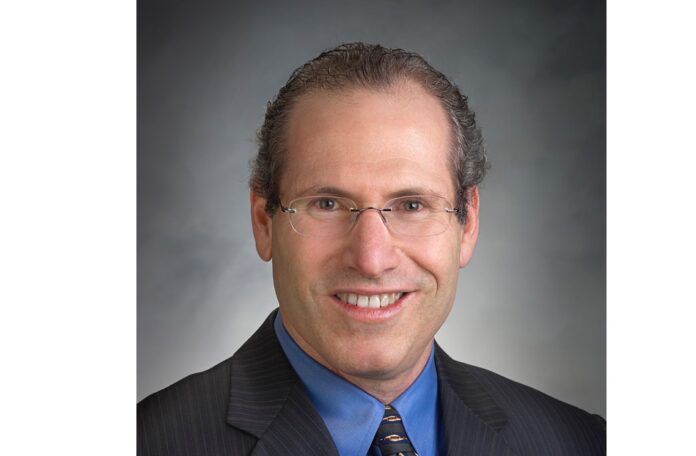Yoram Novick has been hired as the new Zadara CEO and president replacing co-founder Nelson Nahum, who is stepping sideways to a CTO role and upwards to chairman of the board.
Zadara provides its own take on the public cloud with fully managed compute (EC2 compatible), storage (block, file, object) and network systems hosted in a global point-of-presence (POP) network, called edge clouds. It can also be run on AWS, Azure, GCP and Oracle public clouds, or in a customer’s own datacenters.
By May last year it had grown to having 441 POPs and 250-plus MSP partners. Now it has passed 500 edge cloud locations, and done deals with KINX for the Korean market and Green Mountain to grow its presence in the Nordics. In March it bought ZVS in Brazil to grow its Latin America presence.

Incoming CEO Novick said in a statement: “The current cloud model is centralized creating a huge gap in the market and increasing demand for superior performance and security for latency sensitive applications and data sovereignty critical workloads … Zadara is delivering for its customers and partners a top-notch cloud platform that meets all of their demands for a fraction of the cost of the traditional cloud model.”
Zadara’s pitch is that it simplifies an enterprise’s operations through automated end-to-end infrastructure provisioning of compute, storage and network resources. It’s built this out with partner deals rather than operating its own area and regional datacenters as the big three public clouds do. The attraction of having IT boxes nearer customers than AWS, Azure and GCP is that apps running in them respond faster to user requests and Zadara says it will charge less.
Nahum added: “I have known Yoram for 25 years and he is a proven leader with over three decades of experience building and operating world-class organizations. Yoram is unmatched in his ability to drive product development, strategy, and the operations required to lead Zadara as it delivers cloud technologies that our customers require for sustained competitive advantage. He is exactly what Zadara and our customers and partners need as we enter our next chapter and create the world’s largest Edge Cloud.”
Novick’s record, as far as LinkedIn is concerned, includes being CEO and founder of HCI startup Maxta. Maxta failed in 2019 and went out of business with its assets being bought by China’s Huayun Data Corp.
Set against this is data replication company Topio, which he founded in 2001 and sold to NetApp in 2006 for $160 million. NetApp subsequently closed down its Topio tech-based Snap Mirror for Open Systems product in December 2008.
Post and pre-Topio, Novick had board-level involvement with Storwize, Kapow Software, Druva and Data Frameworks. Since then his LinkedIn record is blank.
Q&A
We asked Novick some questions about what he is bringing to Zadara after the Maxta experience.
Blocks & Files: What makes you think you can do better with Zadara?
Yoram Novick: Similar to what worked well for Topio and many other companies, at Maxta we were building a software-only HCI company while being fiscally responsible with smaller rounds of external investment. As other HCI players raised hundreds of millions of dollars, during a time when large investment rounds and growth at all costs was popular even if it meant losing boatloads of money for a significant amount of time and having no visibility to profitability, we took a different approach to growth but this unfortunately led to Maxta not getting the opportunity to prove its model. Timing is everything.
The entire market realizes these days that “growth at all cost” is not sustainable especially now that the era of 0 percent interest and cheap money is over.
This is the right time for me to join the team at Zadara as growth, while being fiscally responsible, is essential in today’s challenging climate and this has always been my approach to building businesses. Zadara investors strongly believe in this model and it is the path Zadara has been on.
Blocks & Files: What have you been doing in the four years since you left Maxta?
Yoram Novick: Since 2019, I have been a board member/advisor to several startup companies.
Blocks & Files: What will you bring to Zadara that Nelson Nahum is not able to do?
Yoram Novick: I have broad experience running startups in good times and challenging times and the benefit of learning from these successes and failures. Nelson will continue to play a key role in the company co-leading in his role as CTO and chairman. We have a synergy having known each other for 25 years that will be beneficial to Zadara and its customers. We see that and so does the board.
Blocks & Files: What is your vision for Zadara over the next five years?
Yoram Novick: Our corporate goal is to continue solidifying Zadara as the Edge Cloud leader and eventually disrupting the centralized cloud model by enabling superior cloud computing experience at a lower cost for most cloud customers and use cases.
Blocks & Files: Why do you think customers are choosing Zadara rather than public cloud services on the one hand and on-prem suppliers’ subscription services like Dell APEX and HPE GreenLake on the other? What does Zadara uniquely bring to this party?
Yoram Novick: Customers are choosing Zadara rather than public cloud services due to the inherent challenges of their centralized model – performance (especially for latency sensitive use cases), lack of digital sovereignty, security, and high, sometimes unpredictable costs.
Customers are choosing Zadara rather than Dell APEX and HPE GreenLake since Zadara is the only vendor that truly was built for consumption-based pricing. With subscription services, customers have to commit upfront to a fixed configuration that lacks the flexibility, scalability, and consumption-based pricing that customers require. Initially, customers have to overprovision to the maximum expected temporal usage even if most of the time their usage is lower thereby overpaying for their subscription. They can’t scale down and can only scale up by committing to additional fixed configurations. This is not a challenge for Zadara customers.
Zadara’s differentiator is that it built and optimized its software and support for a distributed edge cloud model delivering superior cloud experience. Retrofitting a centralized cloud model to the edge or adapting on-prem software to the cloud is not the same as building a true distributed edge cloud from the ground up.
Zadara is also the only vendor that opens up revenue growth opportunities for Managed Service Providers via the Federated Edge program. It enables MSPs to deploy their services anywhere in the world with no upfront cost – the same way that they deploy in their own datacenters.
Blocks & Files: Is Zadara self-funding and profitable?
Yoram Novick: Zadara has raised funds from multiple investors since its inception in 2011. All of Zadara’s investors support the company and its business model. Zadara has been EBITDA positive since 2022 and expects to be operationally profitable this year.








